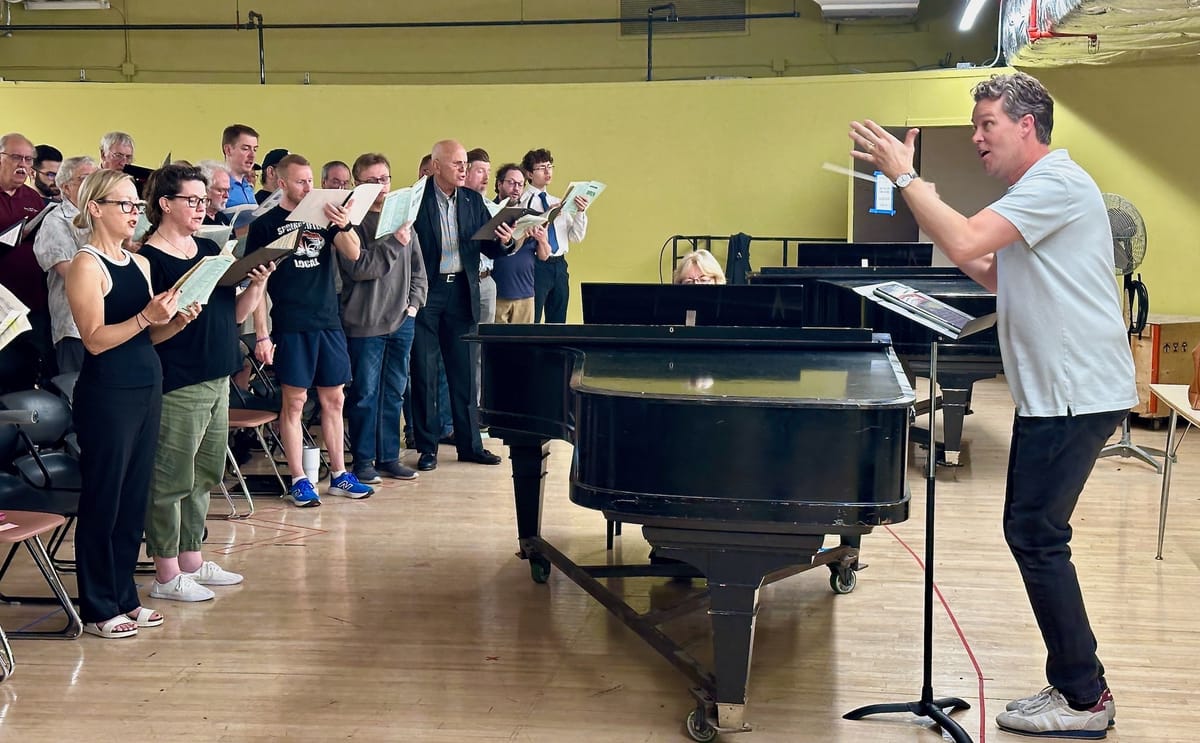In its 53rd year, the Wichita Jazz Festival adds a local history lesson
The 2025 festival, which takes place April 22-26, includes performances by April May Webb, Matt Wilson & Peter Erskine — plus an event celebrating Wichita jazz history.
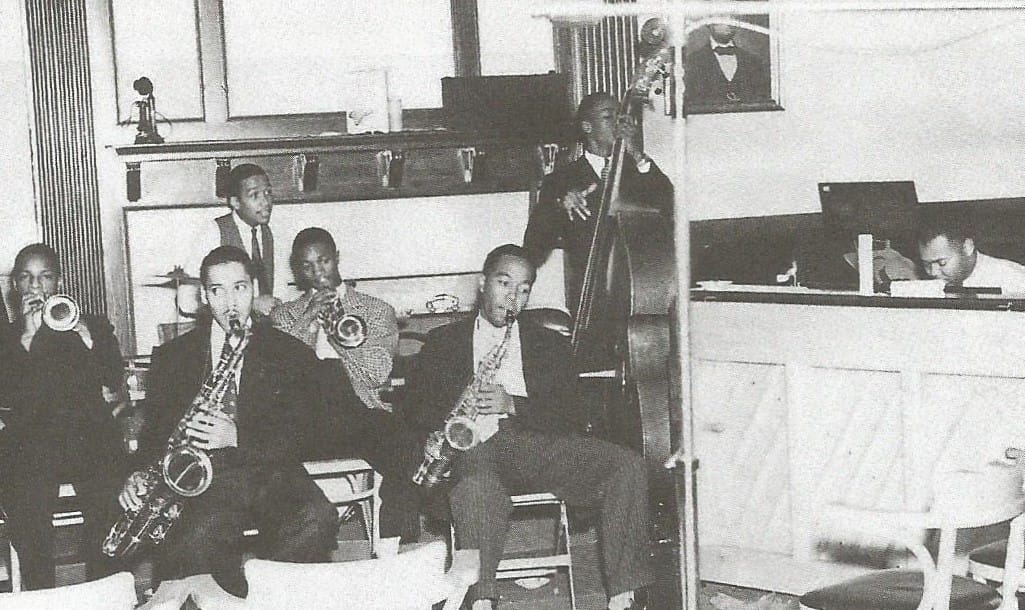
“Direct from Paris, Mr. Jazz himself!”Advertisements like this gushed with news that Will Marion Cook and his band, the New York Syncopaters, were spending two weeks in Wichita in 1919. Their presence coincided with The Wheat Show, an exposition celebrating that crop and other Kansas contributions to the country. President Woodrow Wilson was set to speak, with Cook providing the music. Wilson took ill and did not come out of his train car, but Cook and his jazz performers were still a hit.
Dee Starkey, a Wichita Jazz Festival board member who has researched the community’s jazz history, will share the full version of this story and more as part of his presentation “The Sound of the City: African American Influence on Jazz in Wichita.” The event, set for 10 a.m. April 22 at The Kansas African American Museum (TKAAM), 601 N. Water St., is part of this year’s festival.
Starkey’s talk also includes images, including many advertisements from the Wichita Eagle. Moving on from the World War I era, Starkey will explain how jazz became established in Wichita, with performance spaces — especially the Orpheum — that lent themselves to bringing in big names. Duke Ellington and Ella Fitzgerald played here. Louis Armstrong performed at the Wichita University field house in the 1950s.
Both the lecture and Starkey’s interest in the subject are influenced by his father Jim Starkey. “My dad had a dance band, and he knew everybody that played everywhere,” Starkey said. After their own gigs for primarily white audiences, his dad’s band members would drop into other spots. “Some of them would go by and visit the Black clubs, and they were always welcomed in.”
Wichita’s 20th-century jazz history also includes the start of jazz education. “All of a sudden it’s OK to bring this into high schools and colleges,” Starkey said. Starkey said the new school jazz ensembles were encouraged in the 1960s and 1970s by musicians like his dad who had played in armed services bands. “They were starting families and going to school on the GI Bill.”
The Wichita Jazz festival itself began in 1972 — the same year as other enduring annual events including the Walnut Valley Festival, Music Theatre Wichita, and the Wichita River Festival. According to Starkey, the eight or so founders included Ted Blankenship, Maxcene Adams, and Clark Terry. From the beginning, the festival included educational experiences for students and featured concerts for the general public. Initially confined to Century II, the festival eventually moved to venues all over the community.

2025 festival features Sarah Vaughn award winner from Newton
While happy to talk about his presentation and appreciative of the partnership with TKAAM, Starkey is most enthusiastic about the concerts planned for this year’s Wichita Jazz Festival. “I’m very excited about what we ended up with, and the icing on the cake is April May Webb,” Starkey said. “Her parents are in Newton and are really wonderful people.”
Webb recently won the Sarah Vaughan International Jazz Vocal Competition, one of the most anticipated events in jazz. The Wichita Jazz Festival grand finale features Webb and her band S.O.A.R. (Sounds of April and Randall). Randall is Webb’s husband, trumpet player Randall Haywood. The band also includes April’s brothers: bass player Jacob Webb, who has played on a half dozen Billboard number-one jazz singles, and drummer Nathan Webb, a faculty member at William Paterson University and its summer jazz institute. Yoyai Ikawa — “a brilliant pianist,” Starkey said — rounds out the band.
The finale concert also includes Matt Wilson’s Good Trouble. Led by drummer and Wichita State alumnus Wilson, called “boisterous and hard-swinging” by Downbeat, the band features bass player Ben Allison, saxophonist and clarinetist Jeff Lederer, pianist Dawn Clement, and saxophonist Anisha Rush. Starkey said each of the Good Trouble members balance about a half dozen other projects, so getting schedules to align for their Wichita appearance was a feat.
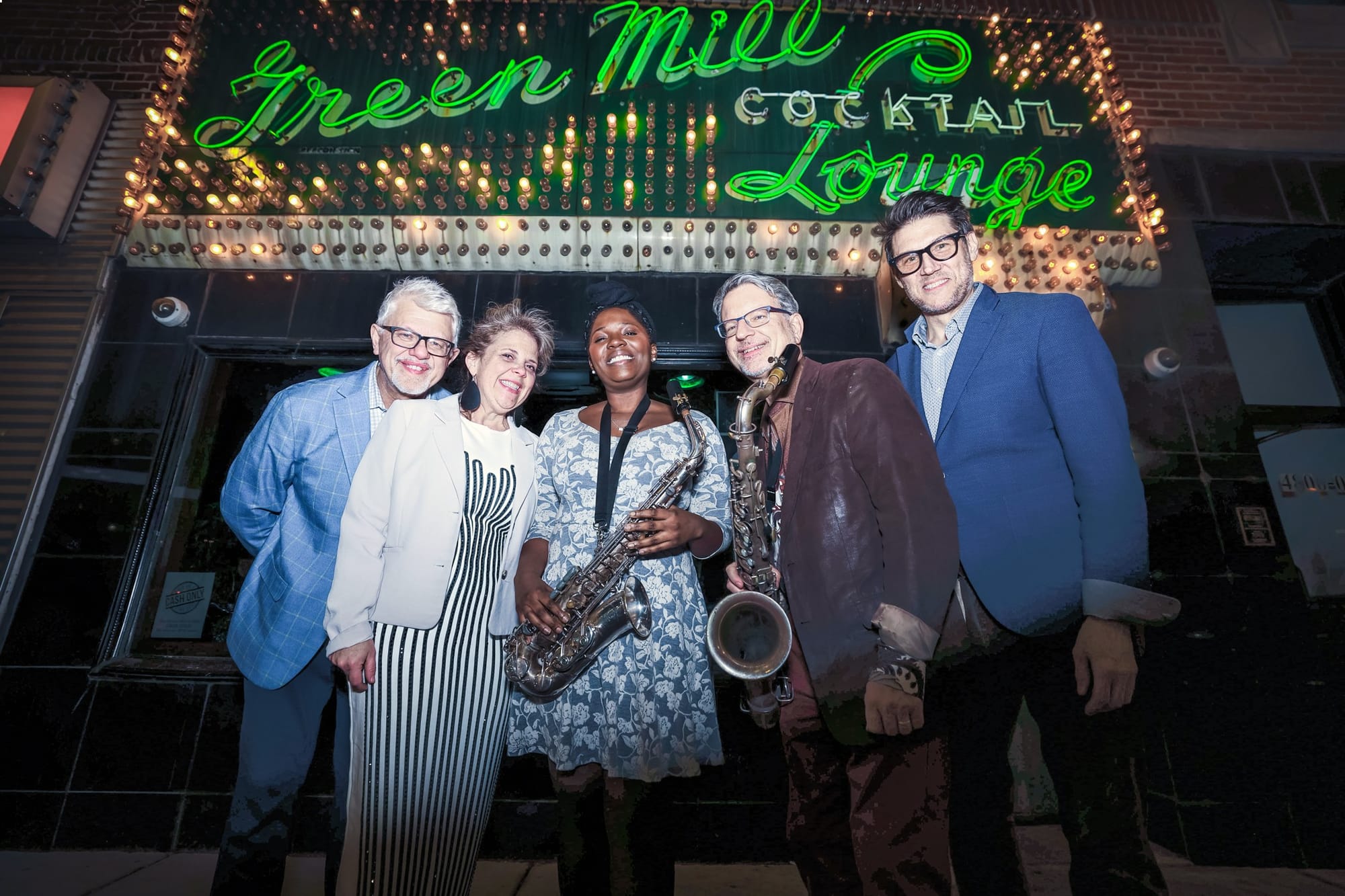
Starkey is also pleased for the festival return of Peter Erskine, best known as the longtime drummer in Weather Report. Starkey first met him in Indiana, where Starkey’s parents taught at a university summer program. Erskine attended the program while he was still an elementary school student.
Erskine performed at the second Wichita Jazz Festival. “Peter was 17 when he was here with Stan Kenton,” Starkey said. Kenton liked Erskine’s long-haired teen look, believing that it would attract young fans. For the Wichita festival, Erskine is appearing with double bass player Scott Colley and pianist Alan Pasqua, who played with Bob Dylan on his longest tour.
The concert is set for 7 p.m. April 24 at the Wichita Art Museum. The pre-show will feature photographs from Erskine’s time with Weather Report, including images of Joni Mitchell, Herbie Hancock, and Jaco Pastorius. “These are just fascinating to look at,” Starkey said.
One of the Wichita Jazz Festival's biggest advocates
A few years ago. Starkey increased the time he was spending on the festival. “I just assigned myself a role — development, historian, and artist relations,” he said. He is also representing the festival at gatherings of local arts leaders. “I’ve been pushy about some things.”
The former owner of the Jim Starkey Music Center has other ideas for events to complement and extend the Wichita Jazz Festival. He was pleased at a recent collaboration with the Tallgrass Film Festival, which screened four jazz-related titles. Starkey sees potential for more. “I sent a list of about 20,” he said.
Starkey also imagines a panel or presentation of jazz writing. Erskine has a book about his time in Weather Report that might fit. Starkey is also pondering a Juneteenth event. The Wichita Jazz Festival has a strong national and international reputation, Starkey said, and he would like that to be mirrored at home.
“Just making these connections, I think we’ve got more top-of-mind awareness,” he said. “I would like to see it known again as a big spring event.”
The Details
The Wichita Jazz Festival includes a range of events April 22–26, from a free night of high school jazz bands to the grand finale concert at the Orpheum, with tickets from $45 to $75.
“The Sound of the City: African American Influence on Jazz in Wichita,” a lecture by Dee Starkey, will take place at 10 a.m. Saturday, April 22, at The Kansas African American Museum, 601 N. Water St. in Wichita. Admission is $5.
Learn more and buy tickets online.
Seth Bate’s book “Winfield’s Walnut Valley Festival” was named a 2023 Kansas Notable Book and won the Tihen Book Award from the Kansas State Historical Foundation. In a previous century, Bate was a National Critics Institute fellow at the Eugene O’Neill Theater Center.
⊛ What is 'percent for art?' About the public art funding program that Wichita art advocates don't want to lose
⊛ How a guy from Wichita resurrected 'Dawn of the Dead'
⊛ Painting through it: Autumn Noire on 20 years of making art
⊛ Canonizing Black American Life: Robert Peterson at the Wichita Art Museum
⊛ 'You don't have to give up': Clark Britton on making art into his 90s
The latest from the SHOUT
 The SHOUTKevin Kinder
The SHOUTKevin Kinder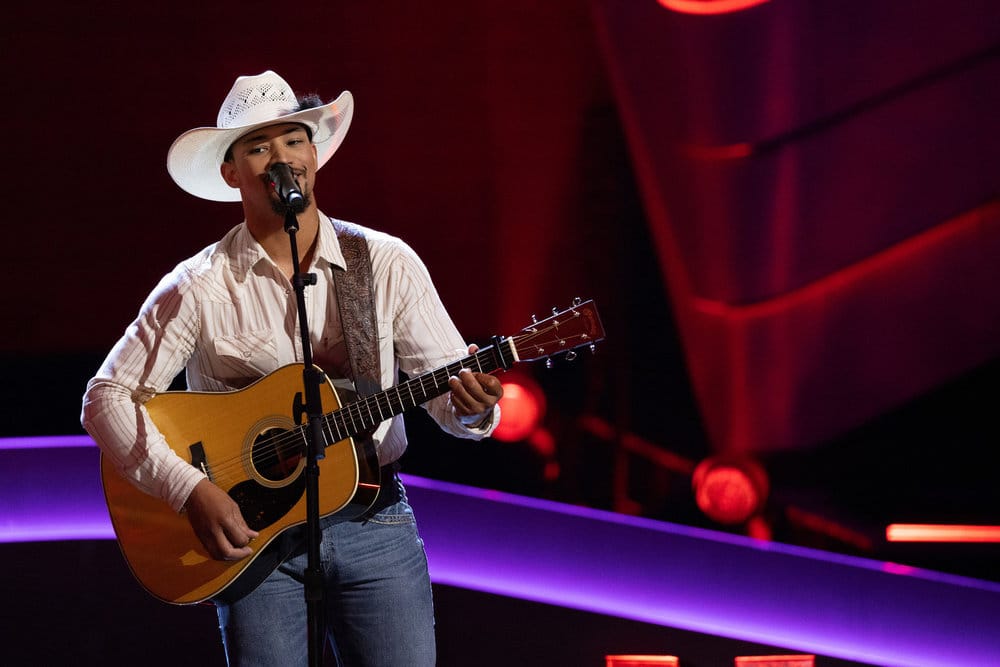
 The SHOUTEmily Christensen
The SHOUTEmily Christensen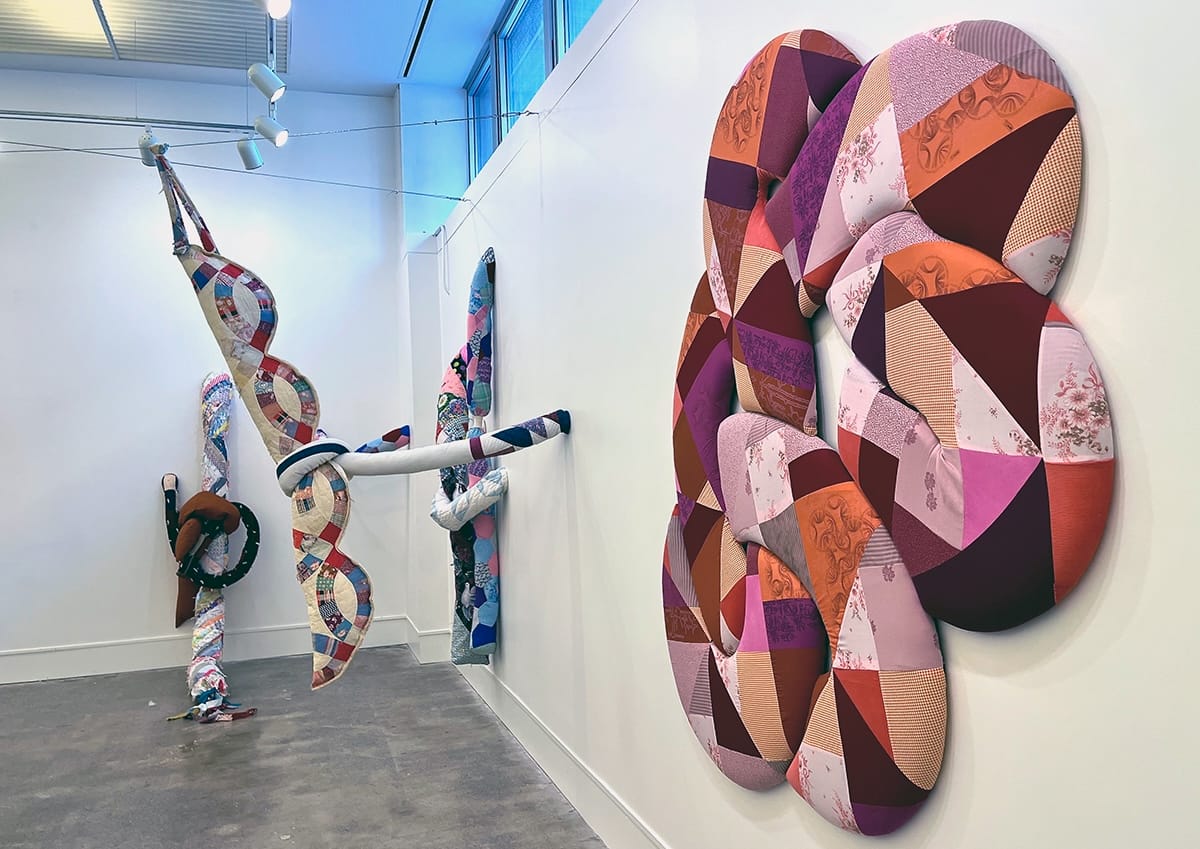
 The SHOUTBrett Crandall
The SHOUTBrett Crandall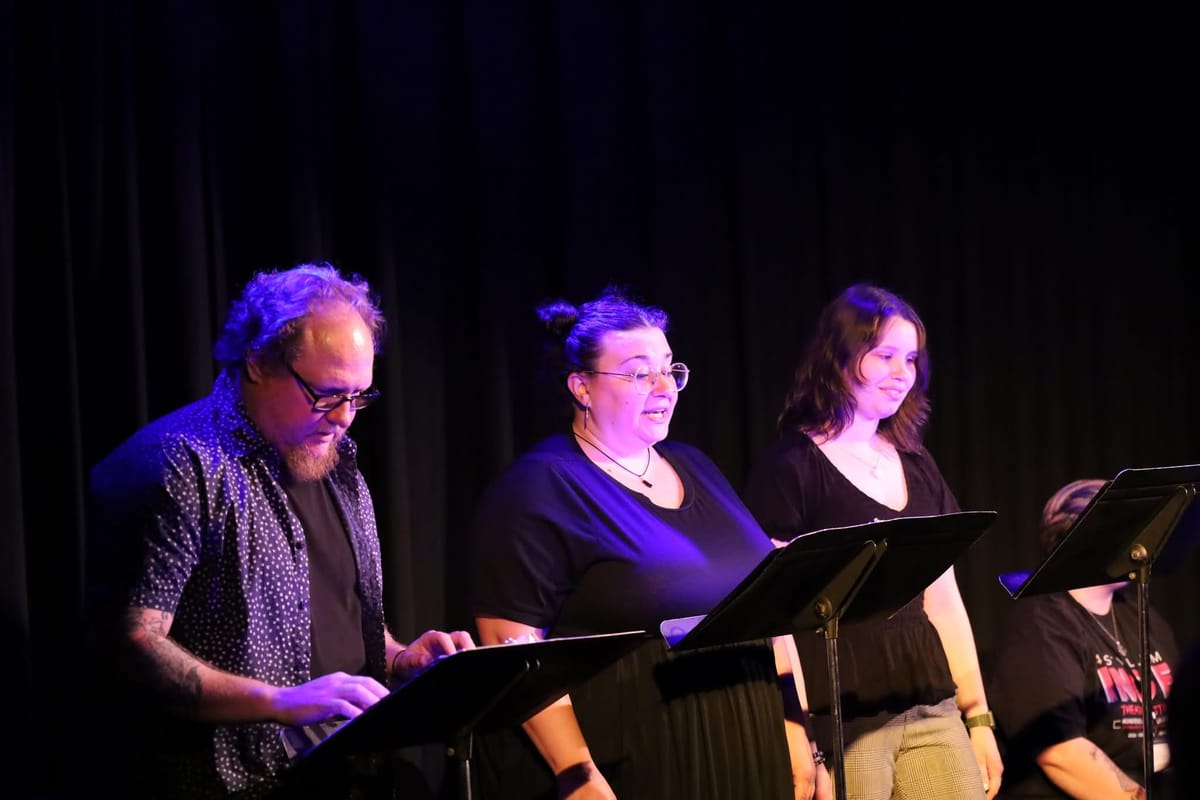
 The SHOUTSam Jack
The SHOUTSam Jack